April Fools’ Day Will Be No Joke at the International Criminal Court
Palestine, as a new member state, will be able to ask for a probe into alleged war crimes in last summer’s Gaza war as well as into Israel’s West Bank settlement policy—whether Israel likes it or not.Palestine will be able to ask for a probe into alleged war crimes in last summer’s Gaza war as well as into Israel’s West Bank settlement policy—whether Israel likes it or not.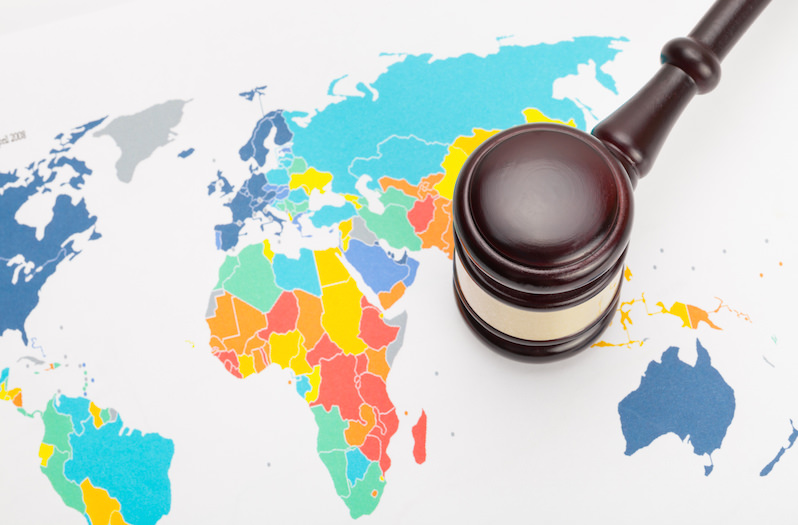 Shutterstock
Shutterstock
No matter what you may have heard from Israeli Prime Minister Benjamin Netanyahu and his right-wing government, or from his fawning admirers in the U.S. Republican Party, April 1 will be no day for fools at the International Criminal Court.
On that day, the state of Palestine officially becomes the 123rd member of the ICC. With its full status as a member state secured, Palestine will be authorized to ask the court’s chief prosecutor to open a formal investigation into alleged war crimes committed during last summer’s war in Gaza, and into Israel’s settlement policy in the West Bank.
Although there have been late-breaking reports that the Palestinian Authority will delay its investigation request in response to Israel’s decision to release some of the tax revenue it collects on behalf of the authority and has impounded since January, Netanyahu’s bellicose policies aren’t likely to change in any fundamental way. As a result, even if it is delayed, a formal investigation still appears inevitable and, above all, necessary.
The court’s prosecutor — Fatou Bensouda, a former attorney general and justice minister of the Republic of Gambia — announced in January that she would open a “preliminary examination” into what the court termed “the situation in Palestine.” Opening a formal investigation, however, would exponentially expand her powers to examine evidence and witnesses, conduct on-site visits, request the issuance of arrest warrants and eventually prepare a case for trial.
Under the court’s complex procedures, theoretically anyone—including individuals, activist groups and nongovernmental organizations—can request that the ICC prosecutor start a preliminary examination. If the prosecutor concludes, after gathering all relevant information, that there is a reasonable basis for pursuing an official investigation, she can apply to the court to do so. But member states can jump-start the investigation process under Article 14 of the Rome Statute, the ICC’s founding treaty, by directly referring war crimes allegations to the prosecutor for official investigation.
Despite Israeli protestations to the contrary, Palestine is now a member state, equipped with all the rights and responsibilities that membership provides. (Neither Israel nor the United States has acceded to the Rome Statute and joined the court.)
Palestine’s initiation of an investigation will not mean, of course, that trials of Israeli leaders will be a foregone conclusion. Bensouda and the court will still have to be convinced that there are reasonable grounds for war crimes trials to convene, and that any alleged crimes fall within the court’s subject matter, personal and territorial jurisdiction.
Still, as the famous fictional British detective Sherlock Holmes once quipped, “The game is afoot.” As the ICC’s investigation unfolds, it will be important to keep at least four vital points in mind:
1. Any investigation will target individuals rather than states, and it will be bilateral. Unlike the International Court of Justice — which also sits at The Hague, Netherlands, and considers cases brought against nations — the ICC tries only individuals. Under the Rome Statute, Bensouda also will be required to probe war crimes and other serious breaches of international law committed by individuals on both the Israeli and Palestinian sides during whatever time period she decides to consider.
As Bensouda indicated in her January press release, the time period could extend back as far as Nov. 29, 2012, when the United Nations General Assembly granted Palestine nonmember observer state status in that world body, or it could begin effectively on June 13, 2014, as Palestinian President Mahmoud Abbas has requested.
Whatever time frame is adopted, there is no way of predicting exactly what Bensouda will discover as she moves forward. However, the rough outlines of the violations of international law committed by both sides have already been cataloged by Amnesty International in its 2014-15 report titled “The State of the World’s Human Rights.”
The Amnesty report charges Israel with — among other transgressions — displaying “callous indifference” in killing over 1,500 civilians in July’s Gaza war, causing massive civilian displacement and destruction of property and vital services. The report additionally cites Israel for imposing collective punishment on the residents of Gaza through its continuing land and sea blockade of the territory and for continuing “to promote illegal settlements and allow Israeli settlers to attack Palestinians and destroy their property with near total impunity” in the West Bank.
The report cites Hamas for carrying out at least 22 extrajudicial executions of suspected Israeli collaborators during the war. It also charges Hamas and other Palestinian groups with indiscriminately firing thousands of rockets aimed at Israeli cities and villages. The Palestinian Authority is singled out for conducting arbitrary arrests and detentions in the West Bank.
While Palestinian supporters dismayed by Israel’s disproportionate use of force may object, the bilateral nature of Bensouda’s probe actually is one of the ICC’s greatest strengths. If the rule of law ever is to be respected and observed internationally, all offenders must be held accountable. Nobody should be given a pass.
2. Patience will be required as the investigation proceeds. The ICC is a fledgling institution, a mere 13 years old. As an international tribunal, it exists only through the cooperation and financial support of its member states. It has no standing army to enforce its orders. During its brief existence, the ICC has opened nine investigations and is currently conducting another nine preliminary examinations. It has indicted 36 individuals, but it has completed only three trials, garnering just two convictions. To date, its focus has been on human rights violations committed in Africa. The Palestinian investigation will represent an important broadening of the court’s area of concentration.
Regrettably, there is no time limit on the duration of an ICC investigation, and the Palestinian investigation will no doubt meet with significant attempts to derail and delay it further. The Rome Statute empowers the U.N. Security Council to defer any investigation for up to a year, which will remain a possibility no matter who sits in the White House in the future. In addition, the Netanyahu government can be expected to lobby the court’s European members to withdraw their financial backing, as it has been trying to do unsuccessfully since January.
Still, despite its small body of work, the ICC has proved itself to be meticulous, fair and formidable when allowed to complete its mission. To cite just one example, its 2012 verdict convicting Congo warlord Thomas Lubanga Dyilo of committing ethnic massacres, torture, rape and other atrocities comprises 624 pages.
However long the Palestinian probe takes, it will be worth the wait.
3. It will be important to remember the big picture. As a nonmember state, Israel is under no legal duty to surrender any of its nationals to comply with ICC arrest warrants or to stand trial. Since the court does not try individuals in absentia, it is highly unlikely that we will ever see Netanyahu or any other high-ranking Israeli officials in the dock.
That will not, however, stop the ICC’s investigation once it begins. Bensouda and her colleagues still will conduct depositions of experts, victims and human rights observers, and the results of those hearings will be made public. Ultimately, a clear picture of the crimes committed in Gaza and the West Bank on both sides of the battle will emerge, and those legally responsible for the crimes will be identified.
Even if no one on either side is ever formally brought to trial, the investigation will galvanize the broader struggle for Palestinian statehood. It may also inspire future efforts to investigate human rights violations committed elsewhere: in Egypt, Syria, Iraq, Iran, Russia, Ukraine and even — dare we say — the United States, which was cited by the Amnesty International report for its use of torture against suspected terrorists, its racist prison system and its continued imposition of the death penalty.
4. This is serious business. The fourth and final point to keep in mind as the ICC’s action on Palestine proceeds is the simplest: No matter where you stand on the merits of an investigation, the world has reached a historic turning point from which there is no reversal.
Netanyahu and his cronies may squawk and threaten as loudly as they like, but the ICC has welcomed the state of Palestine into its family of member nations. And that’s no joke—April Fools’ Day or otherwise.
Your support matters…Independent journalism is under threat and overshadowed by heavily funded mainstream media.
You can help level the playing field. Become a member.
Your tax-deductible contribution keeps us digging beneath the headlines to give you thought-provoking, investigative reporting and analysis that unearths what's really happening- without compromise.
Give today to support our courageous, independent journalists.
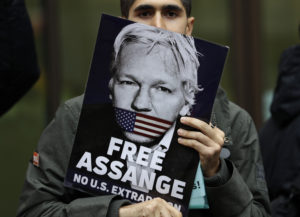
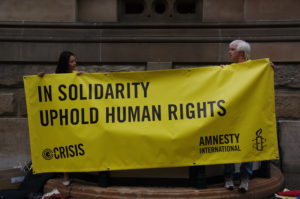
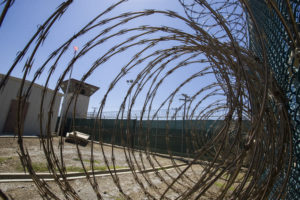
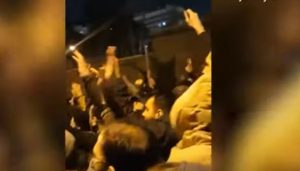
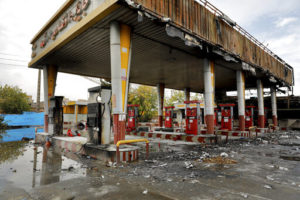
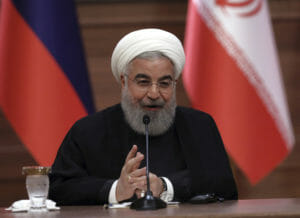
You need to be a supporter to comment.
There are currently no responses to this article.
Be the first to respond.